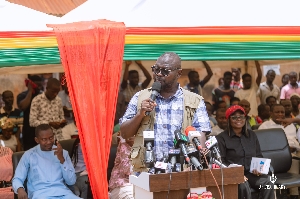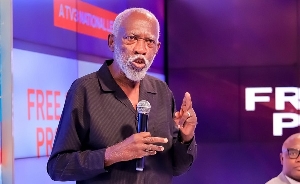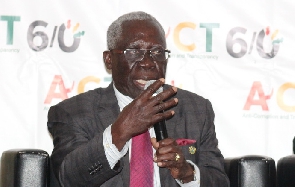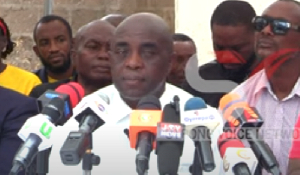Among the many daily needs of (wo)man, the need to locate someone, or someplace (in most cases; locate someone in someplace) at any given point, remains a compelling and irksome task common to a good many across the globe.
It therefore comes as little surprise that the likes of Google (Maps) have made a fortune (and continue to do) from making it simpler, and easier for us all to locate one another – wherever each may be. One must add quickly thus; they are doing a great job at it.
1The claim that nearly all African Cities exist without addresses (system); however misleading, is common knowledge to many. As a matter of fact, this situation, some have said, contributes to the continent’s rather slow development pace of its people and communities. A crippling bottleneck; others go on to add – I disagree!
All over the world, there are as many unique ways of locating people and places, as there are people and places to locate. The debate however remains with which approach is the most efficient and effective.
Some methods are more popular and universally accepted than others. Others still are more appropriate for a certain time and place.
THE GHANAIAN WAY (aka THE LEAST DESIRABLE WAY)
Ghana’s case is one that I am familiar with and therefore proceed to discuss with ease and flair.
Locating people and places in Ghana can, and indeed remains a unique experience to this day.
It is worth adding here and now that, the unique experiences of locating people and places in Ghana are similar and familiar to several others domiciled in most of Sub-Saharan Africa; albeit distinctly unique still.
The ingredients for locating people and places in Ghana starts from exclamations and ends with exclamations. In between exclamations, one can find colors, concrete walls, vegetations and shrubs, drinking pubs, kiosks, sheds, umbrellas, broken down vehicles and open drains and gutters; just to name a few.
Locating people and places in Ghana only requires people. No maps, no compass, no app, no numbers, no alphabets. Just the power of language/communication and an outstretched arm.
It is the way we have done it in Ghana, it is the way many of us still do it, and will remain the way we will continue to do it in the future. Perhaps!
Also unique to the Ghanaian people and places search experience is the fact that, everyone has an idea of the directions to a place. The typical Ghanaian will always give it a short offering directions even when they are not sure of your exact expectations of the seeker.
This behavior tiers in nicely with our ingrained hospitable nature. We Ghanaians do not like to offend.
Naturally, we will avoid even the slightest temptation to offend like a plaque – even if it means we suffer some unintended credibility gap ex post facto.
There is a popular joke suggesting that the easiest way to get lost in Ghana rely on street names and house numbering. There are generations of families living in houses whose numbers though available have never been known to either family member.
It is safe to say thus, when it comes to locating people and places in Ghana, only those unfamiliar but with a strong will and tolerance for ambiguity prevail.
THE (AN)OTHER WAY (aka THE MOST DESIRABLE WAY)
Elsewhere, locating people and places is easier, more logical and less dramatic – or so we are told. Such places lay claim to all the fancy bells and whistles available on earth, and at their disposal for their use.
For persons residing on the other end of the globe, locating people and places often starts and ends with looking at a screen. In-between, one may contend with an occasional flash, beep, automated voice prompt, contours and digitally generated geometric representations; among several others.
Unlike the ‘Ghanaian Way’, locating people and places as is the case elsewhere may not (very often doesn’t) involve human transmission and interference. There is significant reliance on alphabets and/or numbers – most often, a combination of the two.
Maps, compasses, electronic handheld devices and neatly labeled signposts are the key ingredients that accelerate the exercise of locating people and places elsewhere.
PROS AND CONS
Admittedly, finding ones way in and around Ghana is not for the faint hearted. The barriers to surmount are varied and many. There are several examples of how addresses have changed within hours simply because that which used to be a green wall has been painted blue.
Or, the mango tree around the corner that once stood tall is now no more. One would expect the situation elsewhere to be better. That, regrettably may not always be the case.
An experience that readily comes to mind was this one time when a black cab driver (with GPS coordinates and all inputted) and I got lost in North West London. We kept going in circles until we were rescued by a bystander. It takes one to know and understand what it takes to be a black cap driver in London to appreciate how significant this experience was.
Regardless of whether it is the Ghanaian Way or the (An)Other Way of locating people and places, there are limitations – It is fair to say. It begs the questions, Is there another way? A functional way of locating people and places, perhaps?
THE FUNCTIONAL WAY (THE WAY)
My most recent project, Tangkama, has taken me where many businesses are less eager to tread. Tangkama concerns itself with providing Courier Services On-Demand.
Quite obviously, it is impossible to achieve such promise without an understanding of how to facilitate and enable users of this service locate people and places. Tangkama relies extensively but not exclusively on Technological Tools to deliver on its promise.
The research leading to the commencement of this project (Tangkama) brought us face to face with the stark reality of the many bottlenecks associated with locating people and places in Ghana (being the launch market) – and by extension the most parts of Africa. We commissioned this research fully aware of the Ghanaian Way of locating people and places and came out discovering nothing more.
The insights uncovered, among other things, suggested the ‘Ghanaian Way’ was too compelling to ignore. To locate people and places in Ghana, one has to rely on the Ghanaian way of doing it. It was as simple as that.
Like everywhere else, there was a way of triangulating the locations of people and places in Ghana. Does it work for Ghanaians? Most! Does it work for foreigners? Few! We found that the Ghanaian Way, however less desirable by some, was FUNCTIONAL.
The Ghanaian Way works to the extent that it worked. Is it cumbersome, inefficient, misleading, illogical and stressful? Yes! Maybe! Maybe not! But then again, so is the case with respect to the (An)Other Way as experienced elsewhere. Is the Ghanaian Way primitive and backward? Nay! Nothing could be farther from the truth.
FINDING BALANCE
The biggest takeout from the research for us (Tangkama) was this; The Ghanaian Way relied extensively on physical and visual features than (an)other method did. If I were required to locate an address in Ghana, say a house of a colleague from work, the physical coordinates of the house are as important as the colour of the outer walls of that same house. It is as simple as that. It is the Ghanaian Way and it works – not all the time, but works nonetheless.
For those who still find this position condescending and unsettling, rest easy.
It would interest you to know that Google (The number one locator of persons and places) is earnestly developing and perfecting what it christened Visual Positions System (VPS). What is that; I hear you ask? Well, it is the Ghanaian Way combined with the (An)Other Way to optimize and better answer to our need to locate People and Places.











